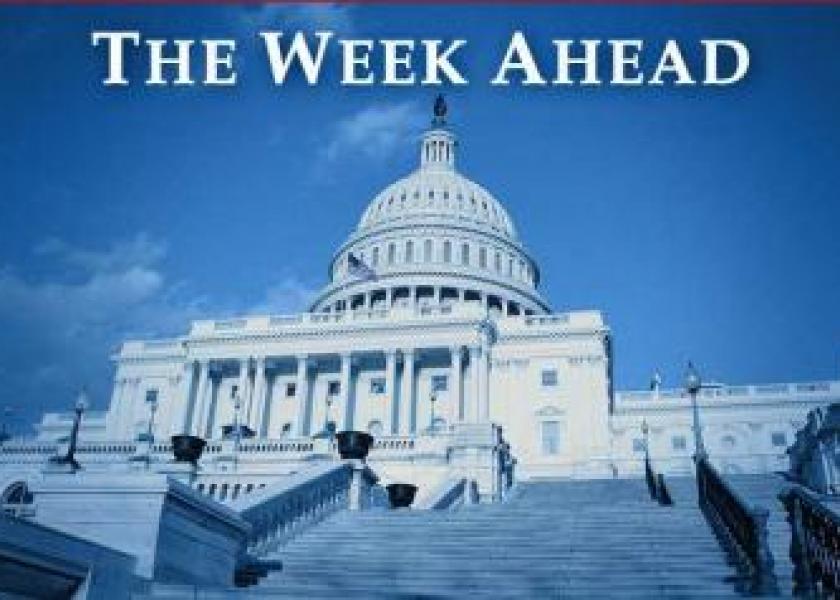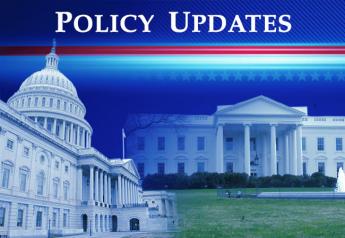Manchin Brings a No Blow to Biden’s Economic/Climate Agenda

White House, Sen. Sanders issue harsh statements about Manchin
Washington Focus
Lawmakers may have left town, but centrist Sen. Joe Manchin (D-W.Va.) left no doubt that he cannot support President Biden’s $1.75 trillion (or higher) social and climate spending plan, imperiling the president’s agenda. Manchin cited rising consumer prices, a growing federal debt and the arrival of a new coronavirus variant as reasons he could not supply his must-have vote to help his party adopt its signature spending package.
Manchin said Sunday that he cannot support the House-passed version of the social spending package that would have extended child tax credits and provided new subsidies for childcare, preschool and elder care. “I cannot vote to continue with this piece of legislation. I just can’t,” Manchin said on Fox News Sunday. “I’ve tried everything humanly possible. I can’t get there. This is a no on this legislation.”
The Senate left town Sunday morning without voting on the bill (House departed earlier), which Democrats call Build Back Better (BBB). In a statement Thursday evening, Biden expressed optimism that talks would continue into the new year and eventually lead to an agreement. But Manchin, whose reluctance to get behind the legislation has grown as inflation has risen to levels not seen in decades, now sounds like his mind is made up. Some Democrats say this is Manchin’s typical wage of getting leverage, possibly on a pared-down version of the House-passed legislation.
“I’ve tried. I mean I really did. And the president was trying as hard as he could,” Manchin said. “He has an awful lot of irons in the fire right now. A lot. More on his plate than he needs for this to continue.”
The White House issued an aggressive statement on Manchin. White House press secretary Jen Psaki said had previously assured President Biden he would support some version of the bill and that negotiations were continuing. “If his comments on Fox and written statement indicate an end to that effort, they represent a sudden and inexplicable reversal in his position, and a breach of his commitments to the President and the Senator’s colleagues in the House and Senate,” Psaki said in a statement. Manchin reportedly informed the administration of his move shortly before going on television Sunday. Top White House officials scrambled to call the senator and talk him out of what he was about to do. “We tried to head him off,” a senior White House official told Politico, but Manchin “refused to take a call from White House staff.”
Manchin expanded on his no reasoning — and offered even harsher words for his fellow Democrats — in a statement issued shortly after his television appearance. “My Democratic colleagues in Washington are determined to dramatically reshape our society in a way that leaves our country even more vulnerable to the threats we face,” he said. “I cannot take that risk with a staggering debt of more than $29 trillion and inflation taxes that are real and harmful to every hard-working American at the gasoline pumps, grocery stores and utility bills with no end in sight.”
Manchin, up for re-election in 2024 in a state that Biden lost by 40 points, also cited a second Congressional Budget Office (CBO) report, which Republicans requested, that determined the legislation would cost $4.5 trillion if the subsidies and credits included were extended. The White House dismissed that CBO score as “fake,” arguing that the proposal as written would cost far less and be fully paid for.
Initial impact: The legislation’s demise means the expiration next month of the 2021 child tax credit that had given qualifying families up to $300 per month for each child under age 6 and up to $250 per month for each child ages 6 through 17. The Biden administration is exploring the possibility of providing double payments in February to make up the shortfall, White House Press Secretary Jen Psaki said Friday. Pushing off the president’s economic agenda until next year means that the payments, which have been sent to families for the past six months but expired Wednesday, are unlikely to be ready for Jan. 15. Psaki said the delayed payments could come in February if the president’s tax-and-spend proposal, which has been put off until after the New Year, gets through Congress in January. “If we get it done in January, we’ve talked to Treasury officials and others about doing double payments in February as an option,” Psaki told reporters aboard Air Force One. The Internal Revenue Service had sought enactment of the bill before Dec. 28 to ensure Jan. 15 payments went out on time.
Other impacts include new proposals to subsidize the cost of childcare, preschool and elder care are off the table, for now. The White House had argued such benefits were a prudent response to rising inflation. Manchin’s comments put at risk a $555 billion package of tax credits, grants and other policies aimed at lowering greenhouse gas emissions.
Sanders comments. Sen. Bernie Sanders (I-Vt.) was among the first to react to Manchin’s statement. During an interview on CNN, Sanders said Manchin will have to explain to his constituents in West Virginia, “a state that is struggling,” why he’d stand in the way of new Medicare subsidies for dental coverage and investments aimed at combating climate change. “Let Mr. Manchin explain to the people why he doesn’t have the guts to stand up to powerful special interests,” Sanders said, calling for a full Senate vote on the legislation next month even if the bill fails. “We’ve been dealing with Mr. Manchin for month after month after month,” Sanders said. “But if he doesn’t have the courage to do the right thing for the working families of West Virginia and America, let him vote no in front of the whole world.”
Bottom line: Manchin’s comments appear to be a solid no and lawmakers are not used to being so specific. BB is dead. Some Dems hope for a new, more Manchin-shaped bill that includes some key pieces of the Biden climate and social policy agenda.
Economic Reports for the Week
U.S. consumer spending and inflation data highlight this week’s economic calendar.
Monday, Dec. 20
- Conference Board releases its Leading Economic Index for November. Consensus estimate is for a 119 reading, which would be 0.6% more than October’s level. The Conference Board currently projects a 5% growth rate for fourth-quarter gross domestic product and a slower but still robust 2.6% for 2022.
Tuesday, Dec. 21
- Q3 2021 Current Account
Wednesday, Dec. 22
- MBA Mortgage Applications
- NAR reports existing home sales for November. Economists forecast a seasonally adjusted annual rate of 6.4 million homes sold, slightly more than in October and the highest since the beginning of the year.
- Bureau of Economic Analysis (BEA) reports its third and final estimate for third-quarter GDP. Economists forecast a 2.1% seasonally adjusted annual growth rate, unchanged from November’s second estimate.
- Conference Board releases its Consumer Confidence Index for December. Expectations are for a 110 reading, roughly even with the November data. The index is 15% lower than the postpandemic peak reached in June of this year, due to concerns about rising prices and, to a lesser degree, Covid-19 variants.
- Chicago Fed National Activity Index for November
Thursday, Dec. 23
- Department of Labor reports initial jobless claims for the week ending on Dec. 18. Jobless claims have averaged 225,667 a week in November and December and have finally reached prepandemic levels.
- Census Bureau reports new-home sales for November. Consensus estimate is for a seasonally adjusted annual rate of 770,000 new single-family houses sold, 25,000 more than in October. The median sales price of new houses sold in October was $407,700, while the average sales price was $477,800—both record highs.
- BEA reports personal income and consumption expenditures for November. Economists forecast a 0.6% monthly increase for income and 0.5% for consumption. This compares with gains for 0.5% and 1.3%, respectively, in October. The Federal Reserve’s preferred inflation gauge, the core PCE price index, jumped 4.1% year over year in October, the fastest rate since 1991. Predictions are for it to spike 4.6% in November.
- Census Bureau releases the durable goods report for November. New orders for durable manufactured goods are expected to increase 2.1%, to $265.6 billion. Excluding transportation, new orders are seen gaining 0.6%, compared with a 0.5% rise in October.
- Core PCE Price Index
- Consumer Sentiment for December
- Fed Balance Sheet
- Money Supply
Friday, Dec. 24
- Markets and gov’t are closed in observance of Christmas.
Key USDA & international Ag & Energy Reports and Events
New week but same issues as traders continue to assess South America weather and any damage assessments from last week’s major Midwest winds. USDA this Tuesday offers another food price outlook update.
Monday, Dec. 20
Ag reports and events:
- Export Inspections
- Milk Production
- Malaysia’s Dec. 1-20 palm oil exports
Energy reports and events:
- Nymex/CME January WTI crude futures expire
Tuesday, Dec. 21
Ag reports and events:
- Food Price Outlook
- Chickens and Eggs
- EU weekly grain, oilseed import and export data
Energy reports and events:
- API weekly U.S. oil inventory report
Wednesday, Dec. 22
Ag reports and events:
- Broiler Hatchery
- Cotton Ginnings
- Cold Storage
- Poultry Slaughter
Energy reports and events:
- EIA weekly U.S. oil inventory report
- U.S. weekly ethanol inventories
- Genscape weekly crude inventory report for Europe’s ARA region
- EU expected to announce green investment rules for gas, nuclear projects
Thursday, Dec. 23
Ag reports and events:
- Weekly Export Sales
- Cattle on Feed
- Hogs and Pigs
- Livestock Slaughter
- Peanut Prices
- Port of Rouen data on French grain exports
Energy reports and events:
- EIA natural gas storage change
- Russian weekly refinery outage data from ministry
- Insights Global weekly oil product inventories in Europe’s ARA region
- Russian weekly refinery outage data from ministry
- Russian President Vladimir Putin expected to give his annual news conference
- Baker Hughes rig count
Friday, Dec. 24
Ag reports and events:
- USDA closed for Christmas holiday






